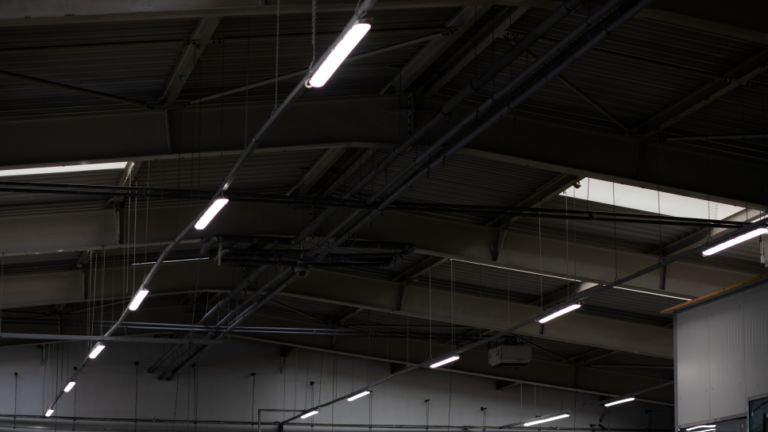See how much you could save on energy costs with our easy-to-use LED Energy Calculator.
Open Energy CalculatorWe design and manufacture an extensive range of luminaires for a diverse number of sectors and applications. Whatever the shape, purpose or style of your space, we have a lighting solution.
View all sectors & applicationsView our latest product, OCTO smart lighting and application sector brochures.
Download our BrochuresFind information regarding our product warranty, product data downloads and FAQs regarding lighting and technical terms. Here you will find support with training CPDs as well as useful lighting design and LED strip calculators.
View the Energy CalculatorOCTO delivers the complete smart lighting package to transform the efficiency and ambience of commercial and residential spaces.
Download the BrochureFind product warranty details, data downloads, and lighting FAQs. Access training CPDs plus handy lighting design, energy and LED strip calculators—all in one place.
View the Energy CalculatorBan on Fluorescent Lighting

As a result of the EU’s RoHS Directive, the production of fluorescent lamps is set to be banned in the UK from February next year. Less energy efficient and cost effective than their LED counterparts, they also contain potentially toxic and hazardous mercury, which can pose a threat to the environment.
Here, Anthony Parkinson, Technical Compliance Manager at Ansell Lighting, looks at the issues surrounding fluorescent lighting in more detail, exploring the new rules that are coming into effect and the alternative options available.
Since their creation in the 1930’s fluorescent lamps have become a common source of lighting for homes, businesses and organisations across the world. More energy efficient than incandescent and halogen lighting, their presence has been a familiar fixture inside properties for well over eighty years.
However, like halogen lighting before it, the production of fluorescent lamps is set to be banned. A result of the Restriction of Hazardous Substances (RoHS) Directive, both the EU and UK government have forbidden mercury to be used in all new lamps as well as other types of electrical and electronic equipment.
Considered to be a hazardous substance, mercury is a powerful, developmental neurotoxin that can cause health and environmental problems. Whilst perfectly safe to use in lighting sources when undamaged, if a fluorescent lamp breaks or is disposed of improperly, the mercury it contains can contaminate the surrounding environment, posing a risk to human health.
In the UK, the production of CFL, T8 and T5 lamps will be banned from 1st February 2024, six months later than in the EU which sees the same ban enforced from 25th August 2023. Only HPD lamps and special purpose lamps are exempt from the ban and will be produced for another 3-5 years.
Whilst existing stock of CFL, T5 and T8 lamps can continue to be sold until levels are exhausted, it is fair to assume that their availability will undoubtedly become increasingly limited as time moves on, increasing purchase and maintenance prices and rendering lighting systems obsolete. Now is the time for wholesalers to reinforce this message to their customers; encouraging installers to speak to customers about upgrading and replacing their lighting systems to LED, to help maximise cost and energy savings.
Most will be familiar with the benefits of LED lighting, which proposes many advantages over fluorescent lamps. Up to 80% more energy efficient, it is cheaper to operate and far more environmentally friendly. LEDs also have a significantly longer service life and so offer far better value for money interms of purchase price. Another major benefit of LEDs is that they are also much more controllable, allowing assorted colour temperatures and intensities to be set. This not only meets individual lighting needs and requirements more closely, but also offers further energy saving benefits.
Alongside the ban of halogen light sources, the phasing out of fluorescent lighting is expected to mean that LED light bulbs will account for 85% of all bulbs sold by 2030 and will reduce carbon emissions by 1.26 million tonnes every year – the equivalent of removing over half a million cars from the UK’s roads.
Given the current economic pressures that homeowners and organisations are facing in the UK, many property owners/managers may see the complete upgrade of a lighting system as an unnecessary or unachievable cost; opting to simply replace a fluorescent lamp with an LED equivalent instead. Whilst this makes sense in theory, it does come with risks that installers should be keen to highlight to customers.
Firstly, LED replacement tubes are up to 30% less energy efficient than a complete LED installation so the savings and benefits are much reduced. Secondly, once fitted, they may not meet relevant safety requirements as the internal wiring of the luminaire may require adaptation to ensure that it is operating correctly with an LED lamp. This will require further evaluation and testing which in itself can push up costs.
Whilst the initial outlay for a new LED lighting system may be more expensive than the replacement option, a full system replacement is the recommended option. Not only safer but more energy efficient, it is estimated that savings made on electricity use alone will typically deliver a return on investment in just three years.
For wholesalers, the ban on fluorescent lamps presents a clear opportunity for the range of LED products it sells to be increased. Whilst demand for fluorescent products will undoubtedly continue in the immediate future and will need to be satisfied, buyers should also take into account its phasing out and the heightened demand for alternative technologies.